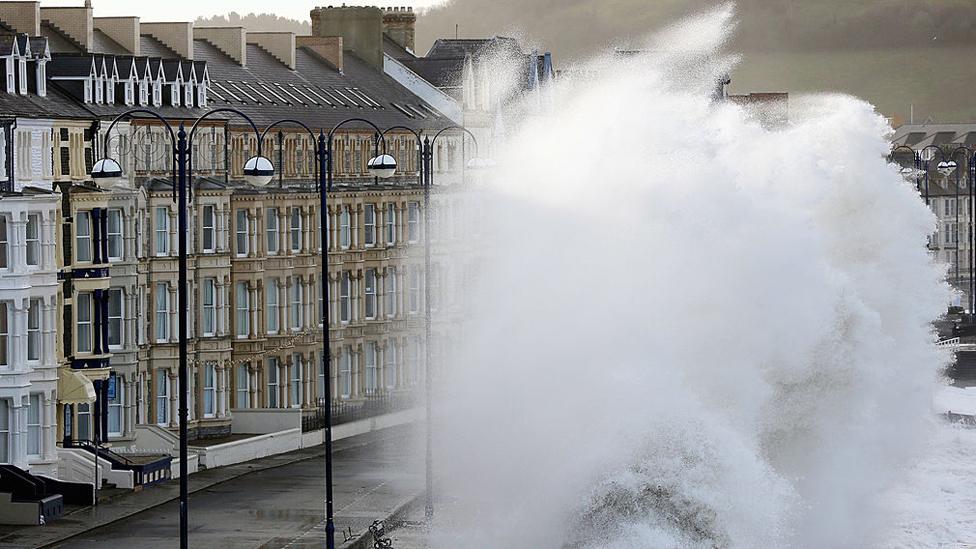Climate change: Call to ban new roads as part of challenge
- Published
- comments
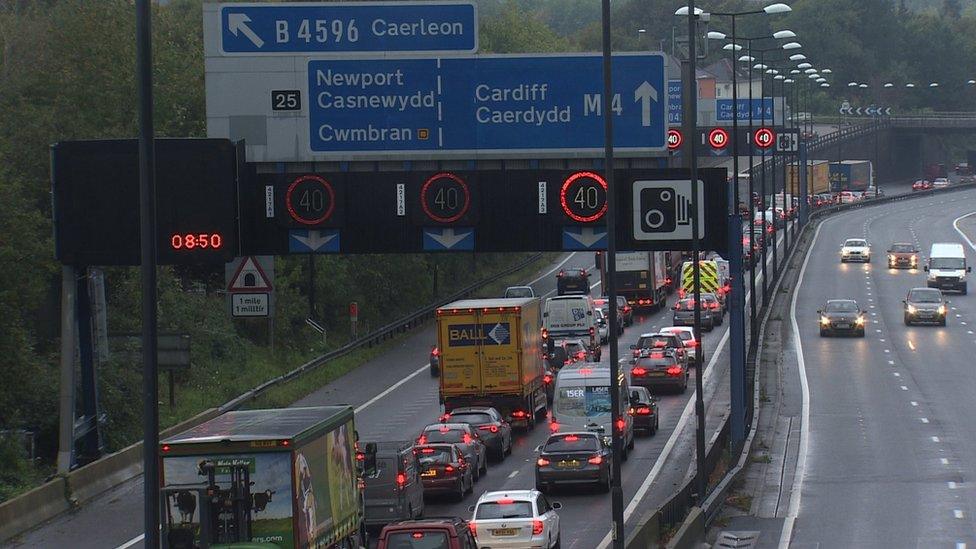
The proposed M4 relief road around Newport was scrapped in 2019 because of its cost and impact on the environment
A ban on new roads, gas power plants and incinerators is needed if Wales is to play a leading role in tackling climate change, a report has said.
Friends of the Earth Cymru (FOEC) also wants to see an end to subsidised flights between Cardiff and Anglesey.
The charity's Climate Action Plan said the Welsh government must outline steps for "much deeper and faster" cuts to greenhouse gas emissions.
The Welsh government said it welcomed the report.
FOEC said the Welsh government's plans were not consistent with its goal for a "globally responsible Wales".
The charity's report, seen exclusively by BBC Wales, said ministers should set out to achieve effectively a 100% cut in climate warming gases - known as a net zero target - well before 2045.
Currently, the Welsh government's goal is for a 95% reduction by 2050.
This is based on advice from the independent Committee on Climate Change, which said it would be an appropriate contribution to the UK as a whole reaching net zero by the same year.
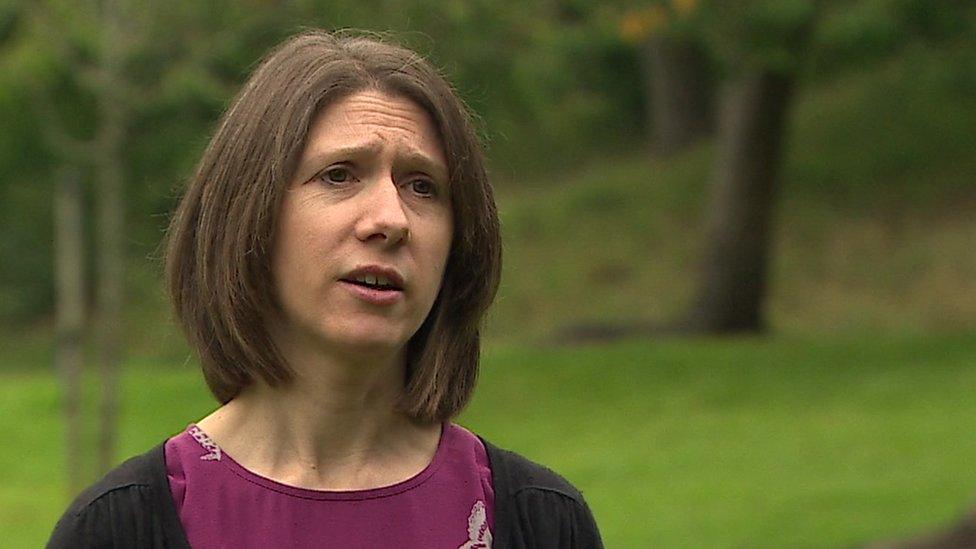
Haf Elgar said a number of steps could be taken to cut emissions
But the charity said it wanted to see a more precautionary approach to minimise the risk of continued global warming.
A tougher target would also take into account the UK's historical emissions and be fairer to poorer countries whose economies are still developing, it said.
To achieve the goal, it wants the government to set a rule for it not to invest in or give permission for any high carbon infrastructure such as new roads, gas power plants or incinerators.
The use of fossil fuel energy should be banned with immediate effect for all new homes and public bodies told to divest their pension schemes from firms involved in coal, oil and gas.
The fate of the Barry Biomass plant has been in limbo for several years
The report also suggested the financial support given to provide north-south flights within Wales is "clearly out of step with climate change goals".
It wants to see funding to prepare for the effects of climate change - such as flooding - targeted at deprived communities.
Adequate green space should also be provided within five minutes walking distance of every home - with car parks repurposed and roads closed to achieve this.
It also wants to see Wales follow New Zealand in stopping using gross domestic product (GDP) growth to measure the performance of the country's economy.
GDP is the total value of goods and services produced over a period of time, but the report said this was an "extremely poor measure of success" as it can result in polluting the environment and fails to take into account the contribution of unpaid workers, often women caring for others.

A subsidised service between north and south Wales has been targeted by campaigners
Haf Elgar, FOEC director, said: "Wales is at a critical crossroads in its history and needs to address multiple emergencies right now - Covid-19 recovery, the climate and ecological emergencies and ongoing inequalities in our nation.
"We urgently need to set targets that are in line with the international Paris agreement, external so that we don't go over 1.5 degrees of global warming.
"Wales has historically been a big polluter and produced a lot of emissions and we need to do our fair share now and reduce our emissions very quickly."
Neil Lewis, manager of social enterprise Carmarthenshire Energy, which helps develop community energy projects, agreed with the report's recommendations and said the threat posed by climate change "keeps me up at night".
"The changes we've made over last 10 years are too little, too slow and we really need to act much quicker and in a much more streamlined, effective way," he added.
He claimed part of the problem was Wales having limited powers over energy, which curtails the Welsh government's ability to take significant action.
But Stuart Cole, emeritus professor of transport at the University of South Wales, said some of the report's proposals went too far: "Underlying any economy is a very efficient transport system and unfortunately that does have some environmental disadvantages from time to time.
"But I think we've seen a reasonable balance with the Welsh government in cancelling the M4 relief road which was going to be an environment disaster in the Gwent Levels, and spending £800m on a new electrified train services from the valleys into Cardiff."
A Welsh government spokesman said: "We have recently published our engagement plan inviting citizens and organisations to shape the next all-Wales plan for reducing Wales' emissions.
"Over the next year we will be consulting on specific policy areas such as transport, buildings, agriculture, air quality, and managing water resources to ensure that policy is aligned with the pathway to achieving net zero emissions and restoring the health of Wales' natural environment."
Analysis by Sarah Dickins, BBC Wales economics correspondent
Friends of the Earth Cymru argues that as we try to rebuild from Covid-19 we should not prioritise economic growth - as measured by GDP - but rather things that matter to people such as health, well-being and communities.
They point to New Zealand which prioritises how the economy affects jobs but also health, environment and civic engagement.
Amsterdam is also moving away from GDP to measure economic success and has set a target to increasing healthy life expectancy by two years by 2025.
Here in Wales there is a debate about whether pure GDP growth fits our needs now.
The prime minister has called for a green and fair recovery... as Friends of the Earth is now.
The drive for economic growth is based on everyone producing and consuming more.
Products, from washing machines to mobile phones, have been designed to be used and then replaced by newer, "better " models.
That has kept the economy growing but it has come at a cost to the planet and grown inequality.
Wales has seen its GDP steadily fall in relation to the UK as a whole, what is interesting is that Friends of the Earth Cymru's plan is not very different from the strategies of some of the biggest businesses in the world - Unilever to name just one.
- Published9 March 2020
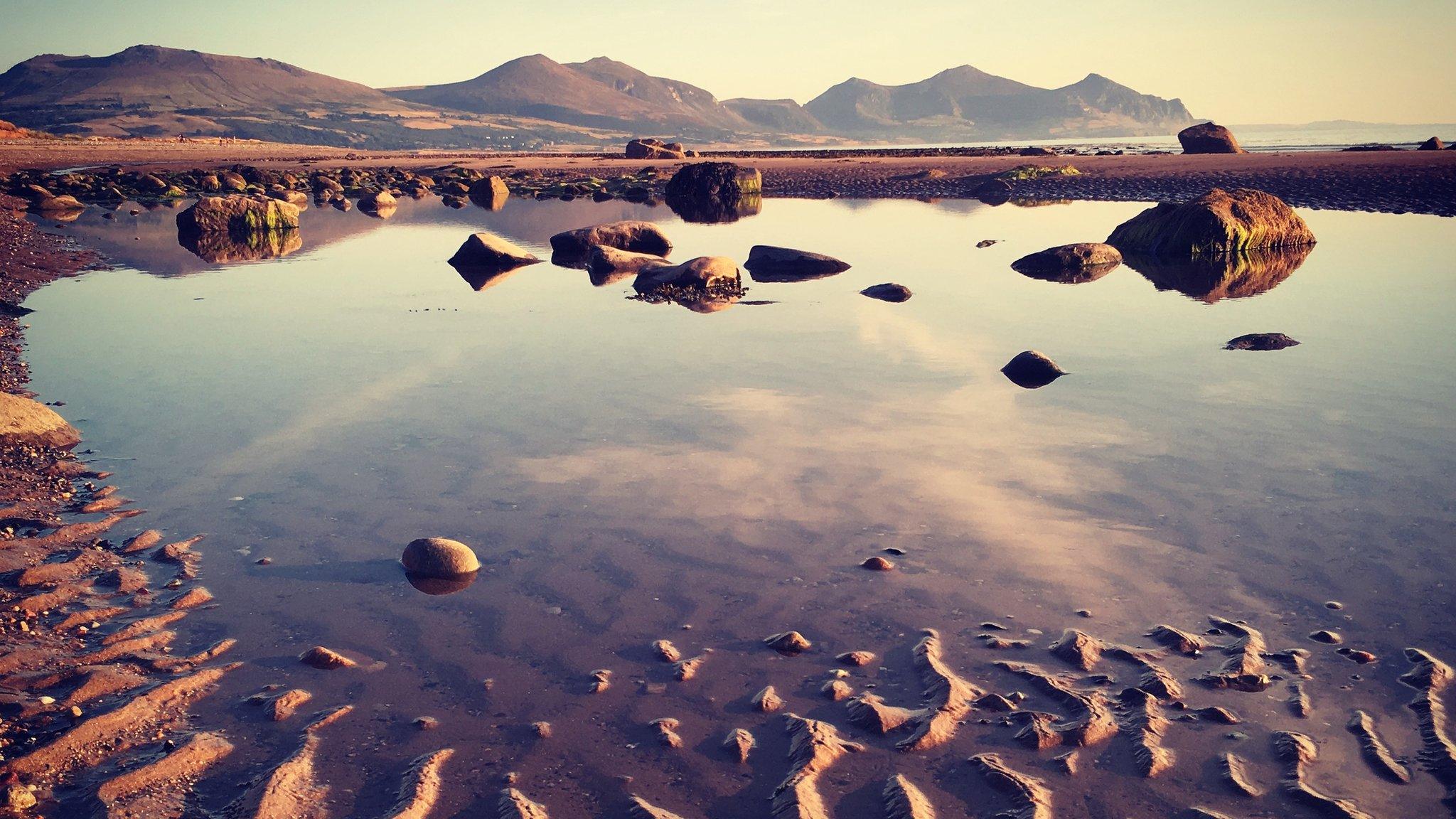
- Published18 October 2019
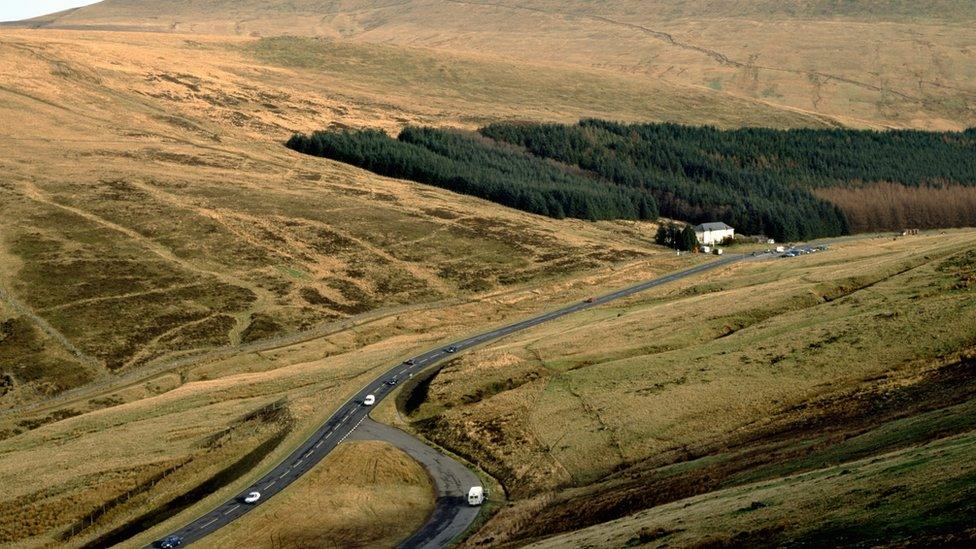
- Published28 November 2019
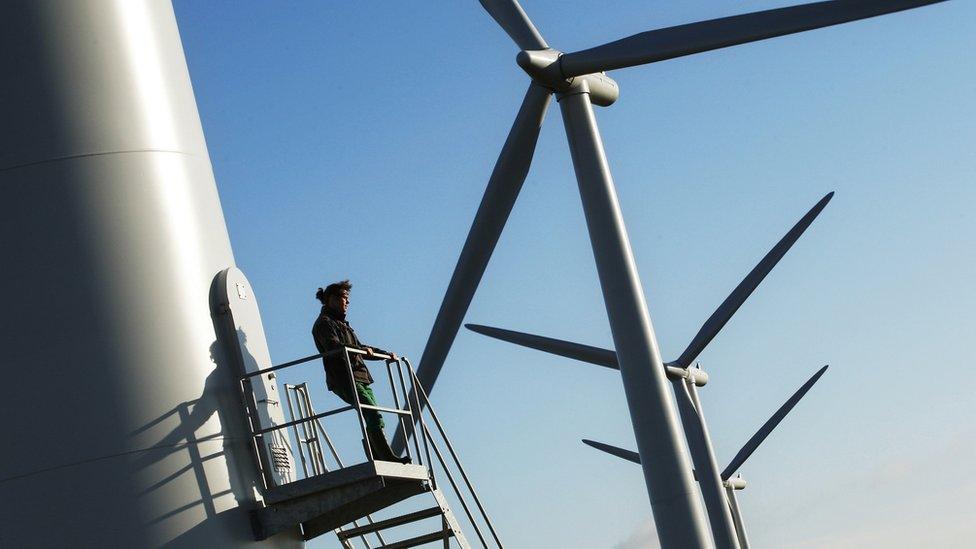
- Published20 September 2019
